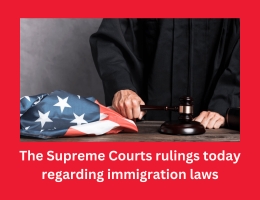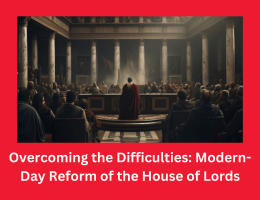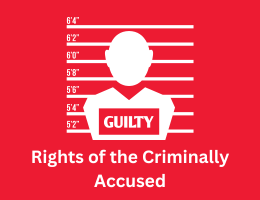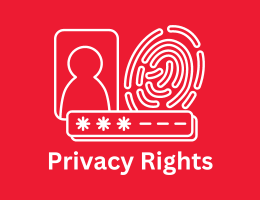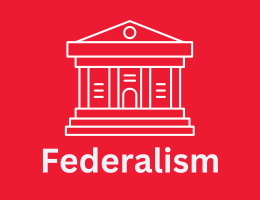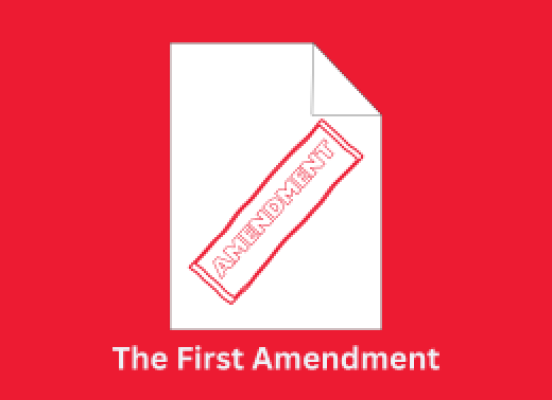
The First Amendment: Safeguarding Freedom of Expression and Assembly
- By admin --
- Thursday, 07 Mar, 2024
A cornerstone of democratic governance is the First Amendment of the US Constitution, which protects important liberties which might be vital for a loose society to exist. The freedom of expression, the liberty of the click, the liberty of faith, and the proper to deliver together in peace are many of the crucial liberties that the First Amendment upholds. These rights—which guard humans's freedom of speech, right to engage in public discourse, right to training their religion as they see in shape, and proper to peacefully bring collectively to voice grievances—are greater than simply necessities of the jail system; they are the inspiration of American beliefs.
Perhaps the maximum prized and fiercely protected First Amendment right is freedom of speech, which displays the concept that humans ought to be loose to express their mind, emotions, and opinions with out fear of censure or retaliation from the authorities. It encompasses the freedom of expression in all its forms, including written communication, art, symbolism and speech. The Supreme Court has consistently upheld the free speech rights of millions by recognizing that even controversial or offensive speech is entitled to constitutional protection. The Court established the precept that speech can handiest be restricted if it poses a clear and present hazard of impending lawless action or falls within unique classes of unprotected speech, together with incitement to violence or obscenity, via landmark cases like Texas v. Johnson and Brandenburg v. Ohio.
Freedom of the press is closely associated with freedom of expression. The press is a critical watchdog in democracies as it exposes corruption, holds public authorities responsible, and offers information to the general public. The media guarantees transparency and promotes knowledgeable residents via serving as a take a look at on the authority of the government. The Supreme Court has frequently upheld strong safeguards for newshounds, acknowledging the importance of permitting them to report on subjects of public interest with out worry of censorship or reprisal. This has been verified in cases starting from the Pentagon Papers case to New York Times Co. V. Sullivan.
Another essential guideline of the First Amendment is freedom of religion, which ensures that humans can exercise their religion without interference from the kingdom. This consists of the proper to practice one's religion brazenly and without obstacle, in addition to the freedom to worship and observe rites. The Establishment Clause and the Free Exercise Clause, sometimes known as the "dual pillars" of spiritual freedom, prohibit the government from establishing a national religion or needlessly interfering with an individual's exercise of faith. In cases such as Lemon v. Kurtzman and Employment Division v. Smith, the Supreme Court has grappled with drawing a boundary between the illegal intervention of the state in matters of religion and the absolute promotion or restriction of faith.
Furthermore, the capability to gather freely is important for civic engagement because it permits people to come collectively in public areas to explicit their prison worries, guide political exchange, and toughen social bonds. Marches, rallies, and demonstrations are examples of nonviolent meeting that permit humans to voice their concerns and call the authorities. The right to collect has usually been maintained via the Supreme Court, which emphasizes its crucial role in democratic governance at the same time as simultaneously acknowledging the authorities's strength to impose less expensive policies at the time, place, and mode of assembly as a way to hold public safety and order.
The line between freedom of assembly and speech has widened in the digital age, creating new challenges and opportunities for First Amendment defense. Digital communication technologies, online discussion boards, and social media platforms have increased the availability of information and fostered extraordinary levels of public engagement. They have, inside the period in-between, additionally sparked troubles about misinformation spreading, algorithmic bias, and censorship. Courts and legislators have to conflict to strike a stability among the need of protective the right to unfastened speech and assembly and the want to cope with new stressful situations to democratic norms and public discourse as the ones problems preserve to boom.
Conclusion The First Amendment protects essential liberties from tyranny and harassment, arguably the cornerstone of American democracy These rights, including freedom of speech, assembly, and religion, allow people to be free enter public life, question the status quo, what makes sense to improve their communities and the United States are able to contribute. It is the duty of all citizens to shield, protect, and exercising these important liberties as stewards of the First Amendment at the way to make certain that the promise of justice and freedom for all endures for future generations.

